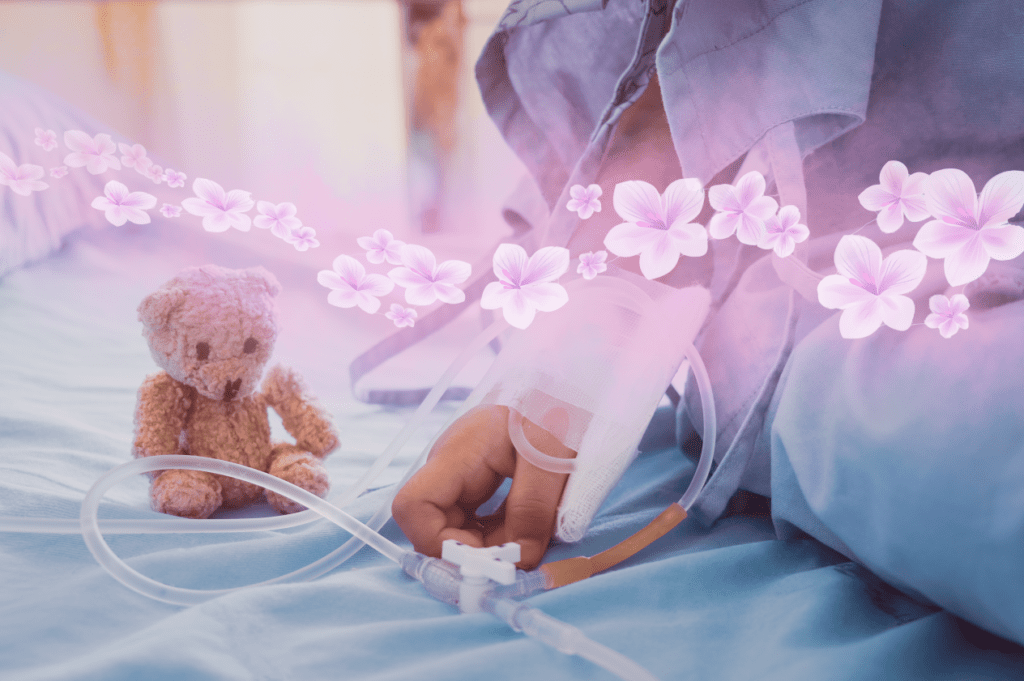Curated Scents for Health Care Environments
Hundreds of award-winning health care facilities across the country use scent to improve patient experience in hospitals. After scenting hospitals for over a century, we’ve put together a list of customer favorite, proven scents for the health care environment. Here’s why you should use scents for health care:

Research proves that essential oils are good medicine, says Brent Bauer, M.D., director of the Complementary and Integrative Medicine program at the Mayo Clinic.
Benefits of Using Ambient Scenting & Odor Control in Hospitals
We work with top Environment Services teams with all kinds of odor challenges. From cancer wards to wound care, the human body can produce many stinky smells! Odor control technology has seen many innovations over the past decade that effectively eliminates odors and freshens the air without the use of harsh, irritating chemicals.
In the past, odor masking was the only option to address medical and biological odors, but that’s no longer the case. Today’s scenting devices and odor control systems target odors at the molecular level. The odor molecules are destroyed and broken apart, rendering them scentless.
Even cleaning products can produce strong chemical odors. And that’s the last thing patients want to smell when they’re feeling ill and nauseated.
Getting Rid of the Anxiety-Provoking “Hospital Smell”
The finest state-of-the-art facilities can be perceived as scary and anxiety-producing when they give off a strong “hospital smell”.
In fact, the first thing the brains register when entering any space is how it smells. As our most primitive and powerful sense, scent is tightly linked to our memory. In the case of health care facilities, the always present smell of cleaning products can trigger involuntary memories of negative events — visiting a sick loved one or their first surgery, for example.
It should not be that way anymore.
Top 10 Ways Pleasant Scent Improves Hospital Environments
The use of scent has powerful effects on how patients feel and how satisfied they are with their experience. Pleasantly scented facilities start at the lobby and proceed to each department of the hospital.
Scent improves hospitals by:
- promoting healing
- comforting patients
- relieving pain & nausea
- providing a fresh, inviting environment
- eliminating odors
- banishing the “hospital” smell
- increases HCAHPS scores
- patients are more likely to choose your facility in the future
- enhances quality perception
- highlights cleaning efforts
Scent not only signifies quality and cleanliness, it creates a pleasant environment in which patients can heal.
5 Spring Scents That Promote Healing
Dozens of studies have discovered that essential oils protect your long-term health and relieve symptoms of common illnesses.
Essential oils reduce stress, offer pain relief, lift mood by up to 40%, and relieve cravings and nausea. Lab studies show they also kill flu, E. coli, and cancer cells.
-
BEST FOR NAUSEA: PEPPERMINT
Peppermint is well-known member of the mint family, used since ancient times. Research shows that breathing in peppermint can decrease the body’s levels of cortisol, a stress hormone. Furthermore, studies also show that it relieves nausea & promotes health respiratory function. (Tip: Try using peppermint as an insect repellant)
-
BEST FOR BRAIN POWER: ROSEMARY
Rosemary was considered a sacred oil by the Ancient Greeks, Romans, Egyptians & Hebrews. Rosemary reduces nervous tension and fatigue. It’s also great for tasks that require concentration. A study published in the International Journal of Neuroscience evaluated the cognitive performance of 144 participants when using rosemary oil for aromatherapy. It found that rosemary significantly enhanced the quality of memory and increased mental alertness. Another study, published in Psychogeriatrics, tested the effects of rosemary oil aromatherapy on 28 elderly dementia and Alzheimer’s patients and found that its properties can prevent and slow Alzheimer’s disease.
-
BEST FOR ANXIETY: ORANGE
Use orange oil for reducing anxiety. There are many essential oil blends containing orange oils, so it’s widely available in many fresh, exciting fragrances. A study found that people who sniffed orange oil before a test stayed calm under pressure, likely because the orange reduces stress hormones.
-
BEST FOR IMPROVING FOCUS: CINNAMON
Cinnamon is a well-known spice. Additionally, cinnamon essential oil also has many health-promoting benefits. It’s made from the inner bark of the cinnamon (or Cinnamomum) tree. It can lower blood sugar levels, reduce heart disease risk factors and has a plethora of other impressive health benefits. Try using cinnamon scents during the holidays to create a festive ambiance.
-
BEST FOR CALMING & SLEEP: LAVENDER
Distilled from the plant Lavandula angustifolia, the oil promotes relaxation and believed to treat anxiety, fungal infections, allergies, depression, insomnia, eczema, nausea, and menstrual cramps.Best for: Relaxation; Relieving PMSThe scent can trigger the body’s “rest and digest” response, promoting relaxation. A 2013 study found that it also eases pre-period symptoms such as mental confusion and depression.Our professional scenting devices & odor control system are optimized for use in health care facilities. Check out our products!
LEARN HOW AEROWEST HELPS HOSPITALS ACROSS THE COUNTRY!
Subscribe to our newsletter for more facility management news, tips & innovations.












